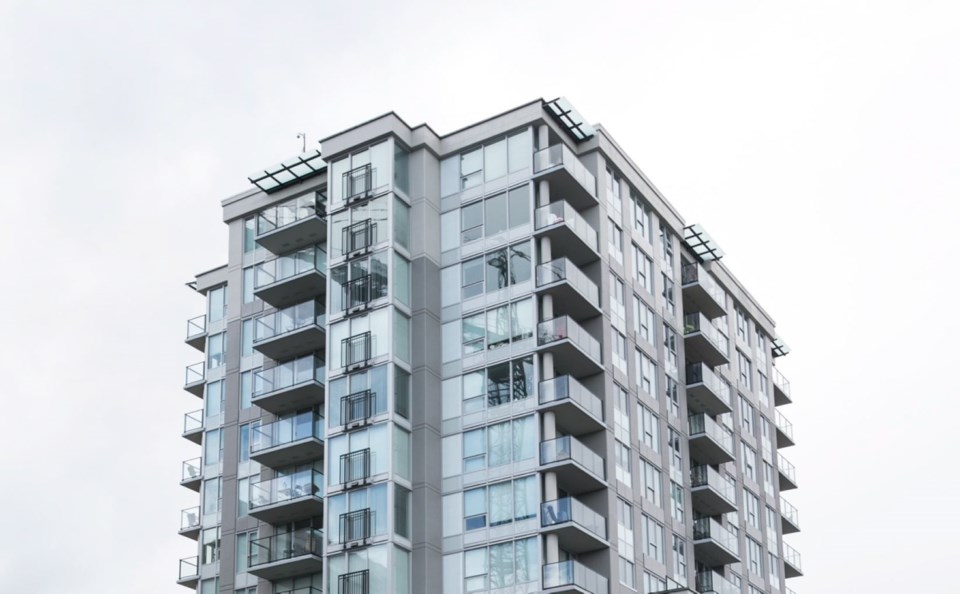A surge in the assessed values of Victoria’s rental buildings, coupled with new rules around rental rates, could translate into reduced investment in existing buildings and fewer new developments, says the head of Landlord B.C.
David Hutniak, chief executive of the organization that represents rental property owners and managers, said another year of increased assessment values could mean higher property taxes for the owners of rental buildings — hurting both landlords and eventually renters.
“Ultimately, renters will be impacted because any landlord contemplating holding rents in 2019 or not passing on the entire [consumer price index] increase [2.5 per cent], they will now have no choice but to do so,” he said.
Last fall, the province cut by two per cent the annual rent increase that landlords can charge, limiting increases to the CPI, which for 2019 is 2.5 per cent.
But with possible property tax increases looming as a result of high assessments, Hutniak said the 2.5 per cent falls far short of what landlords would need to keep up with increased costs.
“There’s simply no way to recoup that. It’s a frustrating situation,” he said.
B.C. Assessment, which sent out more than two million property assessments last week, estimated condominium values increased as much as 20 per cent in the region. Central Saanich and Sidney had the highest change in assessed value at 16 per cent compared with last year. Langford saw its condos increase in assessed value by 14 per cent and Victoria saw an eight per cent jump.
Hutniak said they anticipated another increase in values, so they surveyed 20 per cent of the purpose-built rental buildings in Victoria and found last year they saw an average increase of 13.6 per cent in property taxes.
“That’s huge,” he said, noting the challenge they face is B.C. Assessment bases the value on landlords being able to charge market rent. “But with rent control, that’s just not the case.”
The result, he said, will be landlords delaying investment — from minor repairs to major improvements — in their properties, or putting them off entirely.
And there could also be fewer new rental buildings developed as the returns over time may no longer keep up with costs.
“Meanwhile, there’s so much pressure to invest and enhance these buildings and provide safe and secure rental housing, yet there’s so much pressure on the only source of income [rent],” said Hutniak. “It’s not sustainable. Something needs to give.”
Jillian Shoichet worries it will be landlords not being able to provide safe and comfortable homes for their tenants. The single mother of two rents a suite in a comfortable and well-maintained character building downtown.
She said her landlord has worked hard to maintain the building and has only raised rent “as much as is fair and legal.”
But with the building now assessed at $1.55 million, up from $987,000 last year, there is concern the property taxes will jump. “Our landlord is, frankly, an extraordinary landlord,” she said, noting that on top of properly maintaining the site he is “always available to come by and look at things if we have concerns.”
She is concerned those days could be coming to an end.
“When he showed me his draft assessment for 2019, he really didn’t know what he was going to do. He refuses to charge overly high rent, and has a strong community ethic — he believes it is important to provide reasonably priced housing for families and young people close to downtown,” she said. “The 2019 assessment threatens his ability to maintain the building, but I suspect he will end up taking on more of the maintenance work himself for as long as he can and provide us with housing for as long as he is able rather than let his tenants down or let the building fall into disrepair.”
Shoichet expects less conscientious landlords are likely to let maintenance slide in order to meet their tax obligations. “And I am sure that many will consider evicting tenants in order to renovate, and then justify a higher rent for a renovated unit,” she said.
Shoichet said it’s hard to understand how so many politicians pushed for affordable housing, but do not stand against assessment increases.
Landlord B.C. has reached out to the province to discuss what might be done.



